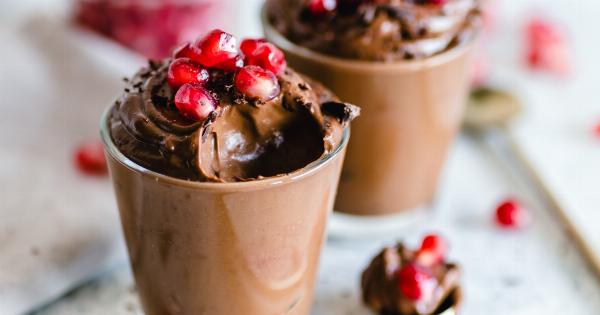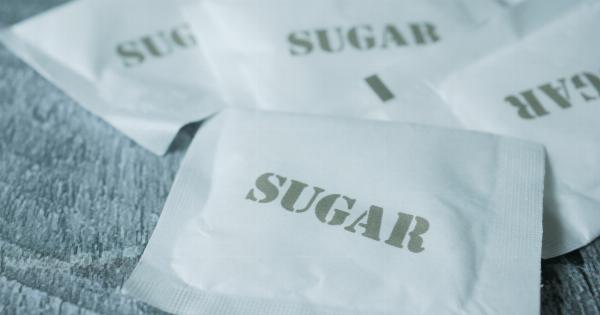In today’s health-conscious society, many people are seeking alternatives to sugar in their diets.
Whether it’s because of weight management, blood sugar control, or simply wanting to reduce their overall sugar consumption, the popularity of sugar substitutes has skyrocketed.
But with so many options available, how do you know which substitutes are the sweetest and what their caloric content is? In this article, we will explore the top sugar substitutes on the market and provide you with a comprehensive guide to their sweetness levels and caloric values.
1. Stevia
Stevia is a natural sweetener derived from the leaves of the Stevia rebaudiana plant. It is often used as an alternative to sugar because it has zero calories and a sweetness level that is 200-400 times sweeter than regular sugar.
This makes it an attractive option for those looking to reduce their calorie intake without sacrificing sweetness in their foods and beverages.
2. Erythritol
Erythritol is a sugar alcohol that occurs naturally in some fruits and fermented foods. It has a sweetness level that is approximately 60-80% as sweet as sugar, but with only about 6% of the calories.
This makes it a popular choice for those following a low-calorie or low-carbohydrate diet, as it provides a similar level of sweetness without the unwanted calories.
3. Xylitol
Xylitol is another sugar alcohol that is commonly used as a sugar substitute. It has a sweetness level that is similar to sugar and is often used in baking recipes as a one-to-one replacement for sugar.
However, it does contain calories, with about 2.4 calories per gram, which is about 40% fewer calories than regular sugar.
4. Monk Fruit Extract
Monk fruit extract is a natural sweetener that is extracted from the monk fruit. It is up to 250 times sweeter than sugar and has zero calories, making it an excellent option for those watching their caloric intake.
Monk fruit extract is often used in combination with other sugar substitutes to balance out their flavors and improve their overall sweetness.
5. Aspartame
Aspartame is an artificial sweetener that is commonly used in diet sodas, low-calorie snacks, and sugar-free chewing gums.
It is 200 times sweeter than sugar and has virtually no calories, making it a popular choice for those on a weight loss or calorie-restricted diet. However, it is important to note that some people may have a sensitivity or intolerance to aspartame, so it is best to consume it in moderation.
6. Sucralose
Sucralose is an artificial sweetener that is about 600 times sweeter than sugar. It is commonly used in a wide range of food and beverage products, including diet sodas, desserts, and baked goods.
Sucralose is non-caloric, meaning it has no calories and does not contribute to weight gain or blood sugar spikes.
7. Saccharin
Saccharin is one of the oldest artificial sweeteners and is approximately 300-500 times sweeter than sugar. It is commonly used in tabletop sweeteners, beverages, and some low-sugar or sugar-free products.
Saccharin is a zero-calorie sweetener, making it an attractive option for those looking to reduce their calorie intake.
8. Neotame
Neotame is an artificial sweetener that is similar to aspartame but is much sweeter. It is approximately 7,000-13,000 times sweeter than sugar and has no calories.
Neotame is often used in a variety of food and beverage products, including baked goods, frozen desserts, and soft drinks.
9. Coconut Sugar
Coconut sugar is derived from the sap of the coconut palm and is often marketed as a healthier alternative to regular sugar. It has a similar sweetness level to sugar but contains small amounts of minerals, including iron, zinc, and calcium.
While it does contain calories, coconut sugar is considered to be more natural and less processed than refined sugar.
10. Agave Nectar
Agave nectar is a sweetener that is derived from the sap of the agave plant. It is often used as a natural alternative to sugar and has a sweetness level that is similar to sugar.
However, agave nectar is higher in calories than sugar and is mainly composed of fructose, which can have negative effects on metabolism when consumed in excess.
When it comes to sugar substitutes, there are a wide variety of options available. Depending on your dietary preferences and health goals, you can choose a sweetener that suits your needs.
Whether you opt for a natural option like stevia or a calorie-free artificial sweetener like sucralose, it’s important to consume sugar substitutes in moderation and consult with a healthcare professional if you have any specific concerns or dietary restrictions.






























